|
3 stars
Did I read a different book than everyone else? Those stellar reviews are making me feel like I missed the hype boat on something… This was fine, but I couldn’t see past some reader-specific flops for me. Concept: ★★★★ Plot/Pacing: ★★★ Character setup: ★ Enjoyment: ★★★ A historical Western horror novel set on the United States/Mexico border in the 1800s, Vampires of El Norte is the kind of story that jumps out at you on the shelves. A Western-style ranch novel... with vampires? A historical fiction Western novel that...doesn't center itself on the white experience? Both of these things were huge radar pings for me, and I knew I needed to try this story. Nena is the daughter of a wealthy Mexican rancher, living the restricted life of a wealthy daughter during this time period. Her only source of excitement is her childhood best friend, Nestor, who is part of the ranch's live-in hired ranch help. But one tragic night involving an unknown beast in the dark alters the course of Nena and Nestor's lives forever, and Nestor flees in the middle of the night thinking the worst. When the two of them reconnect nine years later, Nena and Nestor are different people with different motivations. But their connection remains strong—for better or for worse—and they discover that they must put their personal issues aside to face a great threat from the Anglos encroaching on their land from the east. Because their homeland and lifestyle is coming to an end if they can't stem this tide of white encroachment. And there's something moving in the dark... Alright. So for the sake of avoiding plot spoilers, I will keep my personal reaction portion of the review relatively brief. There were several things about Vampires of El Norte that I enjoyed—the atmospheric setting, the twist on the traditional Western novel experience, and the infusion of Mexican heritage and culture to the vampire canon. However, there were a few quirks to this novel that, I'll be honest, really bothered me due to my personal reading tastes. THEY ARE LIGHT SPOILERS FOR THE BEGINNING OF THE NOVEL, SO STOP HERE if you don't want even the most mild of spoilers. Gone? Ok, so my largest issue that permeated throughout the entire reading experience was the inciting incident between Nena and Nestor. When Nena is brutally attacked as a child, Nestor thinks she's died. He literally flees into the night—worried that Nena's wealthy parents will seek retribution against him, which is valid—and he never returns. Nestor is gone for NINE YEARS. He does not confirm Nena's death, he does not talk to his family or grandmother for nine full years as they are still on Nena's ranch. He literally goes no contact and punishes himself for all of that time thinking his childhood best friend is dead. Then, when he has to return to the ranch, he discovers that Nena is very much alive. (He never bothered to even write a letter to his Abuela to check??) And while Nena acts normal in response—she's pissed, he left and never bothered to come back/verify—the rest of the family, including Nestor's own Abuela, just takes this in stride?? I'm sorry, the logic isn't logic-ing. I know I should have been able to put that aside and enjoy the rest of the novel for what it was, but I'll be honest. I wasn't able to get over it as it was the foundation of Nena and Nestor's adult relationship and the rest of the plot never eclipsed their relationship enough to allow me to forget. This was a highly romantic story and very character driven, so we were always focused on Nena and Nestor as a duo, and therefore I was constantly looking at this "rift" between them and just wishing we had a real problem instead. But that being said, obviously I'm just one reader! And given the excitement and enjoyment that a lot of other people got out of this novel, I'm guessing that my weird logic gap was a unique experience and not the norm. So I do recommend this for my historical fiction friends who want an extremely light dash of horror.
0 Comments
5 stars
This hit all of my buttons—smashed them, really. When Harry Met Sally with some twists, and set in the present day?? Give it to me. Plot Setup: When Harry Met Sally, literally, just more modern Characters: ★★★★★ Pacing: ★★★ Emotional damage: ★★★★★ Let me preface this review with an obvious caveat: I'm a huge fan of the 1990s hit movie, When Harry Met Sally. I love it. I've seen it way too many times. So when I received this early reader copy of You, Again and it said the magic words, I was all over it. And it delivered all the vibes I wanted, plus a whole bunch of other ones that I didn't know I needed. You, Again is a love letter to the messy ties that bind us to other people, the intricate ways we self-sabotage our needs, the fierce desire that we all have in our hearts for connection and purpose. It felt like a manifesto for the late 20-somethings and an intense mirror held up to our fault lines, our fears, and the worst authentic versions of ourselves. It's a romance, sure, but it's more so a novel about human connection and enduring bonds. And I loved every minute of it. When Ari and Josh first meet, the wrong kind of sparks fly. They hate each other. Instantly. Ari's a hot mess. An aspiring comedian working the roulette wheel of temp jobs, sleeping in spare closets called rooms, and guarding her emotional core with spikes made of steel, Ari's the kind of modern-day female protagonist that we don't often see in novels.... but she's real. Uncomfortably real. (I felt called out, let's be honest.) Josh is extremely put together on the outside. He's a talented chef, he's got inherited money and is employed well. He's talented, he's austere, he's witty and sharp. He's also a tangled mess of repression and self-loathing and anxiety spiraling and—okay, yeah, he's a mess too. And fate keeps colliding these two messes together over time. Ari and Josh meeting in an apartment. Ari and Josh running into each other at a drunken New Year's Eve party. Ari and Josh running into each other on the literal streets of New York City. When they both meet at their rock bottom worsts, the two give in to fate. They become friends. And then, eventually, they messily collide into versions of themselves that realize that maybe it's time they became more than that. Y'all.... You, Again gave me emotional damage. In the best way. Heartfelt, devastating, disturbingly real, and grounded in the "now" to the point where I felt like the author was just filming this poor couple in New York in secret—this novel was everything I was hoping to find. I loved it. Will you love it? I don't know. It's not a stereotypical romance. It also relies too heavily on the When Harry Met Sally structure for the first 25% of the novel, so you've got to acknowledge that and keep going. But if none of the above turns you off, you've got to try it. Eagerly looking forward to more from this author, who in my head is a messier, not-STEM-focused version of Ali Hazelwood. 4 stars
The first book from this author from a male point of view?? And a heavy mystery plot?? Kristen Ashley is really branching out, and I'm here for it. Pacing: ★★★ Plot: ★★★★ Enjoyment: ★★★ 1/2 Writing style: It's a KA book, so keep this in mind as her writing style is Very Dramatic and she loves a good one-sentence paragraph (like, REALLY loves it) The Girl in the Woods is the sequel to The Girl in the Mist. Yes, you could start with this one first as it's a new story arc—but it's a richer reading experience if you read them in order. Rus is an FBI detective on the hunt for the Crystal Killer. He's tired, he's jaded, and he's pretty sure he's done with FBI work in general. And he's definitely done with murderers. But when the Crystal Killer strikes in Misted Pines, a small town in the Pacific Northwest that's already seen their fair share of shit, Rus has no choice but to make the trek. And it's another murdered girl. (Rus is bone-weary of finding cold girls in the dark.) Unfortunately for Rus, there's a twist to this murder: while it's done in the style of his Crystal Killer, it's not...quite... right. So now Rus has a copycat killer on his hands AND the worrisome wrath of the real murderer to come once he finds out someone's got his calling card. Suffice to say, things are not going well for Rus. But things look up when he meets the local burlesque club owner, Lucinda (Cin) Bonner. She's everything Rus could want in a woman, and she's a level of competent that he can't help but want to have at his side. Misted Pines might have more for Rus than just his ticket out of dodge. It might be what he was looking for all along... Y'all, this series continues to be unlike any of this author's prior works. It's obviously a KA book—swoony men, drama-drama, and her characteristic writing style that drives me nuts but keeps me coming back--but there were several things in this one that really shook up her canon. And I loved it. 1.) The ENTIRE story was from the male perspective?? Rus is running the show, we don't get Lucinda's POV. This was fresh for KA and honestly fresh for most indie romances I've read. Rus was a very interesting and clearly male gaze for us to have. I liked it, I wouldn't mind seeing more of this. 2.) Of all the Kristen Ashley romances I've read, this pairing was the most mature and lowkey of all of them. Lucinda was an adult who made sound choices, Rus was an adult who made very reasonable choices, and their romance itself was solid. No spoilers, but let's just say there is usually more drama in the romance itself for KA stories. (I love that drama, but this was interesting and I liked it more than I thought I would.) 3.) It completely blurred the line between a mystery/thriller and a romance story. Was it romantic? Yes, as much as I could find a sole-male POV window romantic from my cis-het female perspective. Was it also a gory, descriptive, and pulse-pounding thriller? Also yes. In fact, if I had to pick one shelf for this series to sit, I'd actually place The Girl in the Woods on my thriller shelf, because that's the more natural spot for it to sit. The romance took a backseat to the plot in this one. Which ALSO surprised me, by fact that I loved that too more than I assumed I would. Overall, another winner in the KA index for me. (I am a very biased audience.) Pick this up if you like male POVs, thrillers, and well-rounded romance leads. Thank you to the author for my copy in exchange for an honest review. 3.5 stars
This book was wayyyy too long. But I loved this small town and the family of characters! It gave me all of the fuzzies. (Knox though?? Good grief. Not my choice of male love interest, but that's okay.) Plot: ★★★★ Pacing: ★★ 1/2 Enjoyment: ★★★ 1/2 Things We Never Got Over is a book that I have seen all over the place. It's an adorable cover. Every time I saw it on the shelves, I was like "man, I've got to check out that book!" Many props to the graphic designer for making a really appealing design. So clearly, the marketing worked and I picked this book up! And the verdict is.... It was a fine romance read. I don't often read random contemporary romances these days—there's got to be some sort of complicating hook for me, like motorcycle clubs or paranormal twists—so I'm not sure if this book was a standard for the genre or not. But I think it had some great elements and some meh ones. The great: the sense of community, the character depths in the secondary arcs, the small town vibes, the family drama. The not-so-great: the sheer length of this book, how annoyingly two dimensional the male love interest was, and the unbelievable romance dynamics between our two main characters. But the main con takeaway is the sheer length. This could have lost 100 pages without even FEELING it, and could have shaved 150 pages with a decent trim of the side quests. However - if you're looking for a community-rich and lingering feel good read, give this one a try! 4 stars
This debut came at me from left field! I cried, I laughed, I shouted "why" at the book. Let's just say I connected deeply to Tabitha's emotional journey through the author's skillful window into her world. A new favorite series for me! Characters: ★★★★★ Writing: ★★★★ Enjoyment: ★★★★★ I am so late this party—the third (and final?) book in this series is already out and I'm just now pulling up with my review of this first book. Oh well. Sometimes it's like that. Black Girls Must Die Exhausted is that rare novel that completely transports you into the emotional journey of its protagonist. From page one, I was WITH Tabitha Walker in the way of all great storytelling. Tabitha very quickly became a friend. Tabitha Walker did everything by the book—even down to the personal milestones. Have a good job. Have a good lifestyle routine. Have a nice-on-paper boyfriend. Have good relationships with her girlfriends. She's reaching for her next promotion and about to land a down payment for her first home. Things are looking good! Check, check, check. But just as we meet Tabitha, her life freezes in place. That last thing on her checklist that I forgot to mention? It was having a family. And Tabitha's just found out that she's got 6 months left of viable time to make her parenthood dreams come true. Now it's time for Tabitha to reassess her life goals and pivot, fast. With her entire checklist now sidelined and reshuffled, we're buckled in as she swerves to keep climbing on her to success. It seems like curveball after curveball keeps coming her way, and despite all of her successes, this last mic drop moment onto her life has got her sense of self shaking a bit. But there's happiness even in the journey, and Tabitha's framework of friends and family are there to help her weather the tide. This novel is such a gem. Now, to get my one and only critique out of the way--yes, this book was a bit of a rambler. I actually started with the audiobook and quickly(!) decided to transition to the physical copy because I found myself struggling to stay on pace with the meandering sense of backstory vs. real plot. There's a TON of context. But after a while, I got into the flow. The strong sense of Tabitha's personality, which shines from the very first page, kept me going past the meandering back stories and contextual sidebars. And by the time I hit the 30% mark, I was in love with this story. I cared for Tabitha and rooted for her and her friends at each turn. They felt real, like "listening in to a conversation at the next table" real. I'm so happy that Tabitha's journey has more books in it. While I think many readers could find satisfaction in stopping here at the end of the first book, I am definitely ready to see what happens next! 5 stars
Call me an oddball: I loved this story. Simple exterior, complex interior. And, best of all, unforgettable. Concept: ★★★★★ Character: ★★★★★ Pacing: ★★★ Keiko Furukura is a woman who lives on the edges of everyone's "normal" expectations. She's worked in a low-level, part-time position at a local convenience store for decades with no advancement or wish for change. She is single, lives alone, and has no desire for change in her personal life either. In fact, Keiko's life could be defined quite simply as: She is content as she is, and she does not wish for change. However, as with many people who live outside of the bounds of "normal" societal expectations, the rest of Keiko's social and familial sphere cannot live with this reality. Even though it doesn't affect them, even though Keiko is happy and able to pay her bills, the rest of the world is constantly asking her for more, for "normal," and for Keiko to change. As Keiko herself put its, "the foreign body" is either assimilated or eliminated. So Keiko tries to assimilate based on other people's expectations. Convenience Store Woman is Keiko's journey toward assimilation and selfhood. And she just might find out how to achieve personal joy along the way. I thought this story was simultaneously extremely endearing and off-putting at the same time. (Much like Keiko herself, perhaps.) Keiko's life and internal motivations are intentionally on the off-beat for the rest of society, and that friction point is the keystone of this novel's entire existence. If it rubs you the wrong way, then it is telling you that this small story has a message worth exploring. Especially in our modern times, where so many people are exploring different lifestyles, ways of operating in society, and finding their own joy in the human experience—this is excluding discussions of identity, self-presentation, and sexuality, as that's not the core of this novel--I think Convenience Store Woman is a reflection on the bizarre nature of our current times. Who cares if Keiko is unmarried, alone, and working a "dead-end" job? Why does it bother others, when it doesn't bother Keiko and affects no one in a negative way? Why do we, as a society, value the "normal" above all else? Even when—or maybe, especially when—our values of "normal" are extremely bizarre when viewed from a distance? I thought one of the most ground-breaking and fundamental moments in this novel was when Keiko is internally examining the behaviors of her sister and friends when it comes to a relationship decision that she makes in this novel. (Omitting the details to avoid spoilers.) Keiko's made a choice, and it's arguably made her daily life and future much worse. BUT, because it's a more "normal" decision that others know how to react to, the reactions from her friends and family are satirically positive. They're thrilled, even with this clearly negative life choice! Keiko becomes confused, quite logically, at the reasoning behind this. It's not a good choice for her, and she is not happy with it, but their reaction is so overwhelmingly positive—which is a reaction Keiko is unused to seeing--that is makes Keiko believe that this choice is what she "should" continue to make. This is just one example of societal reflection used throughout the novel that I found so fascinating to read. Such an interesting social commentary. We've seen this type of concept before in other literary works, of course, but there is something so "of the now" about Convenience Store Woman and its endearingly likeable edge. A very clever novel with a surprising amount of heart. 3.5 stars
This was an intentionally messy story. And for...why? I don't know, and the more I sit with this the more I find myself bothered. (But who knows, that's likely the point.) Overall message: ★★★ Pacing: ★★★★ Enjoyment: ★★ The best thing about this novel is its title. That's not as mean as it sounds, hear me out. I Have Some Questions For You relates to our main character's profession—she's a podcaster, she is literally paid to ask questions as talking points—and it also clearly relates to how this book is both posing its own questions at its audience and also meant to make us, as audience, ask questions. A never-ending chain of questions, if you will. And that's where this novel frustrated me to no end. It's 2018. Bodie Kane has accepted a job at her old high school alma mater. Granby, a prestigious and private boarding school for elite high school students, has called her back as a short-term teacher for a podcasting class. Bodie's got complicated feelings about Granby and her relationship to it. In 1995, her one-time roommate was murdered. Thalia Keith, the beautiful and enigmatic girl whom everyone liked. The police quickly convicted the Black gym assistant, an early 20-something man who was convicted on hearsay, drug charges, and trace amounts of DNA. This story is one that you've heard before. As the novel brings up throughout its pages, "you know the one." The one where she asked for it. The one where she was on birth control, and therefore consented. The one where she was found in the pool / the basement / the trunk / the woods. The one where it was the man she trusted. The one who was a beautiful white girl who died. The one where there was a Black man present, and that was enough. Now armed with middle-aged wisdom and a 2018 lens on gender interactions, police bias, racism, and more, Bodie has feelings about this case. And she's never been able to let that go. Her podcasting class sees 1995 as ancient history, so when one of her students asks Bodie if she can cover the infamous case of Thalia Keith, Bodie agrees. She's worried that this might be too biased. She's worried about her position of power as a teacher and if this will open up a can of worms she won't be able to justify. But like many things in Bodie's life, she lets it happen around her anyway and she justifies it to herself. Tangled up in this story are themes of inappropriate conduct, gender imbalances, racism, unsolved justice, the #MeToo movement, messy relationships, and flawed perspectives. And all of the above sits in a messy knot, endlessly looping from one thing to the next and getting tighter and tighter as the novel progresses. I don't know. I honestly don't. This novel covers understandably heavy topics that are meant to provoke an emotional response. I think it does this element well. But I think that this novel boils down to one thing: it was messy and unsatisfying. I Have Some Questions For You seemed to want to poke at everything and everyone indiscriminately—look at all of this injustice, look at all of this bias, look at all of these selfish people protecting themselves, look at this racism, look at this misogyny, look at this horror of endless fetishized female murder. Every single piece of this story—Bodie's home life, Bodie's work life, Thalia's timeline, the narration style, the side characters, the endless plot points meant to mirror the core themes—seemed to want to simultaneously be a thesis moment confirming the story's overall message and also serve to be its own counterpoint in the argument. I don't want to spoil this story, so I'll stop there, but let's just say that I did not feel like this tangled knot was justified, and I don't think it did anything to aid the genre or cultural dialogue. It just shone a light on all of the mess, which I guess highlights that I don't like those types of stories where their purpose is just to yell. I recommend this story more to literary fiction fans as opposed to mystery fans. 5 stars
Well I've clearly wasted many previous years without the joy that is Kennedy Ryan. Before I Let Go was nothing short of flawless. Emotional Range: ★★★★★ Plot/Pacing: ★★★★★ Sense of Joy: ★★★★★ Yasmen and Josiah Wade are divorced. After a cataclysmic series of tragedies, the Wades couldn't keep their foundation strong—they fractured in the aftermath of a sorrow so deep they couldn't reach each other. Their vows included "til the wheels fall off." They never imagined that anything could shake that unbreakable, lifetime love. But something did, and now they're two separate ships. Well... Not quite. They're still co-parents of two beautiful children, Deja and Kassim, which they both co-raise with love and daily support. They're also still co-owners of their business—the highly successful restaurant, Grits, is something they grew together and is almost as important to them as their children. So the Wades are still a team... even if that team looks a little (lot) different these days. Yasmen's spent two years in therapy, and with a healthier way to cope and the assistance of her therapist and medication, she's finally starting to feel like herself again after two years of endless night. She'll never, NEVER stop loving Josiah, even though she's the one who forced their hand into the situation of separation. Josiah's always been strong. He won't stop for the bad things, because if he keeps moving those bad things will fade. He's been in constant motion ever since the wrecking ball hit. Every bone in Josiah's body will always love Yasmen. However, he knows that door is closed and all he can do is try to pick up his pieces and love what's left. But where there is love... there is always a way back in. And the Wades are going to find that the light and love could reach them if they find a way to follow it. Before I Let Go is a story of pain, grief, and recovery. It's a second-chance phoenix rising from the ashes. I sobbed my way through this reading experience—sometimes sad tears, sometimes happy tears, sometimes more. This was an emotional release of a book! I aspire to have a life as rich and beautiful as Yasmen and Josiah's. From the tears and pain to the light and love, this was such a beautiful, real journey and I feel blessed to have had this reading experience in my life. I have no complaints, besides of course my own internal AGH! that it took me this long to try Kennedy Ryan. This book might include some serious darkness, true, but it is really about the light that shines in all the cracks. What a stunning, utterly perfect read. Pick it up! 4 stars
This was such a fun read, and perfect for historical fiction fans and casual fans alike! A unique hook—bonesetting in 1700s London. And a very uniquely endearing character—Endurance "Durie" Proudfoot. Concept: ★★★★★ Characters: ★★★★★ Plot: ★★ Enjoyment: ★★★★ In the mid 1700s, Endurance "Durie" Proudfoot enters the world in the small English town of Lewes. She's larger than most women, stronger than most women, and her no-nonsense honest attitude takes up as much space in the room as her physical presence. In short, Durie sticks out. And not in an acceptable way for ladies to stick out in history. Her father is a bonesetter, someone who sets people's broken bones, sprains, dislocations, and more through a hands-on knowledge of anatomy and brute strength. It's a "knack," according to him, and one that's been passed down through the line of men in their family for generations. Durie has the knack too—it's just, she's a woman. When circumstances change and Durie has to follow her sister to London, Durie slowly realizes that her knack might be worth practicing here in London society. There's a lot of people with ailments, and the modern doctors with their random poultices are making things worse. Durie's never been one to let things sit when something good can be done, so she starts to practice. A lot happens when Durie--with her men's boots, large frame, blunt attitude, and undeniable talent—enters the London scene. She's in for an adventure.... That Bonesetter Woman took me by complete surprise. I am a very, VERY rare historical fiction reader—I tend to fall into these books via some other hook that gets me invested. In this case, it was the act of bonesetting. Bonesetting as a career was new to me, and immediately piqued my interest as I love all things medical history and macabre. Obviously, this fit the bill! However, it wasn't the act of bonesetting that kept me turning the pages of this novel. It was Durie herself. I fell in love with this blunt, kind-hearted woman who stuck out in all the ways it was possible to stuck out like a sore thumb at the time. I quickly found myself invested in Durie's journey, her passions, and her capacity for kindness and love. This is a character-driven story with a lot of humor and heart. I will say, due to the above pros in this tale, there were a few cons by comparison. This plot was predictable at every turn—do NOT come for a unique and surprisingly take on this type of "girl goes to the big city and shoots her shot" type of story. All of the things that happen in that stereotyped tale happen here, and with the same outcomes you'd expect. However, if you can put the predictableness aside, this story will steal your attention and your heart anyway. Go Durie, go! 5 stars
Wow, what a honey-slow, menacing descent into the edges of one town's humanity. This book's unique flow, storytelling, and surprising mystery made for a stunning read. Concept: ★★★★ Actual flow of story: ★★★★★ Characters: ★★★★★ Enjoyment: I couldn't put this down, I read it into the night I am utterly and entirely entranced by this story. From the reading experience to the well crafted mystery to the ominous and never-ending undertone of death, We Are All the Same in the Dark is a mystery/thriller that I will remember. Trumanell Branson disappeared from the Branson home in rural Texas ten years ago. A bloody handprint was found on the doorframe, but no body was ever recovered. Her father, the unpopular and abusive Frank Branson, also disappeared that fateful night. The only Branson who made it out of that night alive was Wyatt, the younger brother whose mind cracked that night and no one could ever prove fully innocent (or guilty). Odette Tucker's past is tied up in that bloody night like a bundle of chicken wire—one that she refuses to forget and yet can never fully solve. Her father was the policeman first on the scene at the Branson home. Odette herself was dating Wyatt Branson. And Odette's alibi for the night of Trumanell's disappearance is bloody—she was in a rollover car crash a few miles from the Branson property. Now a partial leg amputee and haunted by that night for personal and professional reasons, Odette's turned into the Tucker legacy: a cop for the local community. And she's never let go of the Trumanell case. Tangled up with guilt, a personal pressure to solve the unsolvable, and the sense that what's happened in the past might be happening again, Odette's not as surprised as she should be when Wyatt—now an unstable adult still living in the fateful home—discovers a young woman on the side of road with a dangerous past. They call her Angel, and she's unknowingly brought everything crashing down in this tiny town. I really, really can't say more of the plot without ruining some of the magic. Let's stop there. I thought this novel did a few things brilliantly. One: the narrative voice. It's a spoiler to say WHY I am calling out the narrative voice as the best part of this novel, but just trust me on the fact that there are some unique surprises in just who is telling the story (and mystery fans, it's not that unreliable narrator nonsense). Two: the almost hypnotic sense of reality vs. storytelling at play, and the constant sense that we have, as the reader, that there's elements of the story that we should know (but don't) and that there are things being told to us via these characters that they feel is obvious (but we can't really tell what that is). This is hard to describe, but I've seen it as a negative in other people's reviews when, for me, it was a huge positive. I like a level of confusion, especially when it's done as spectacularly as this. Fans of intelligent mystery/thrillers with a dash of the gothic, pick this up. |
Amy Imogene ReadsJust someone looking for her own door into Wonderland. Categories
All
Archives
April 2024
|
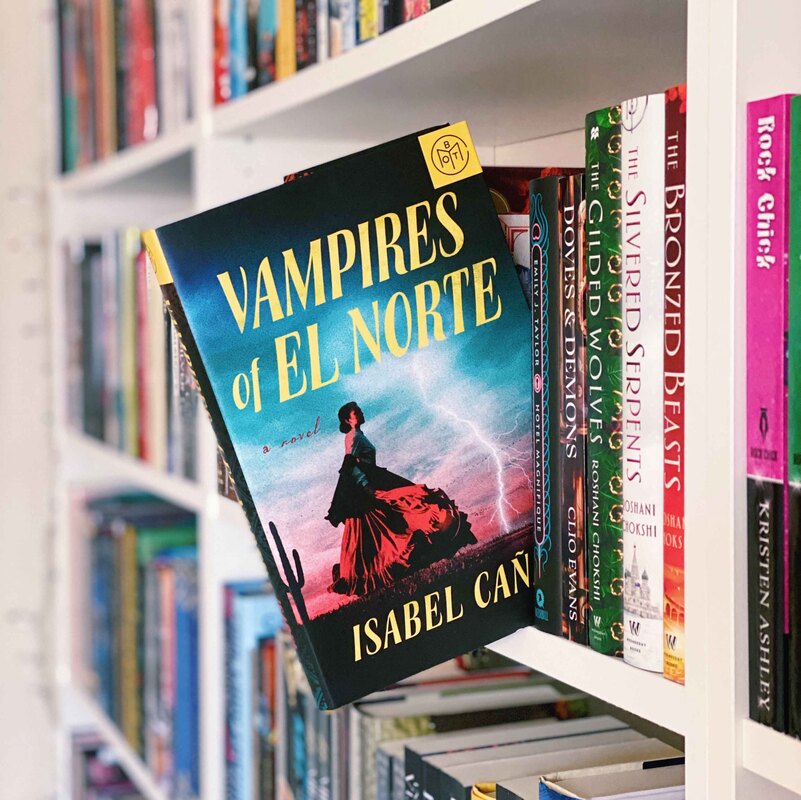
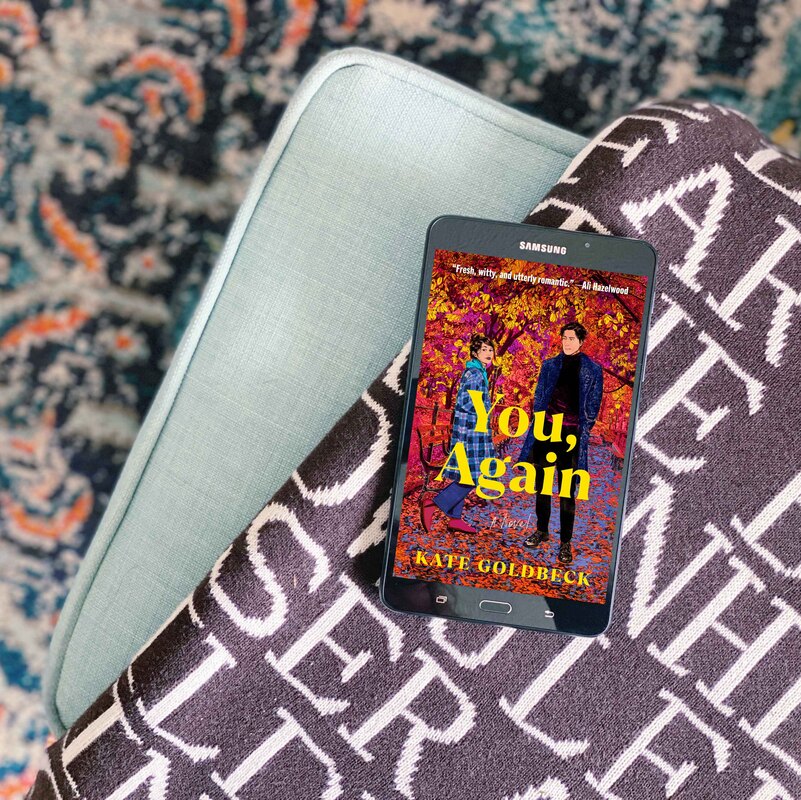
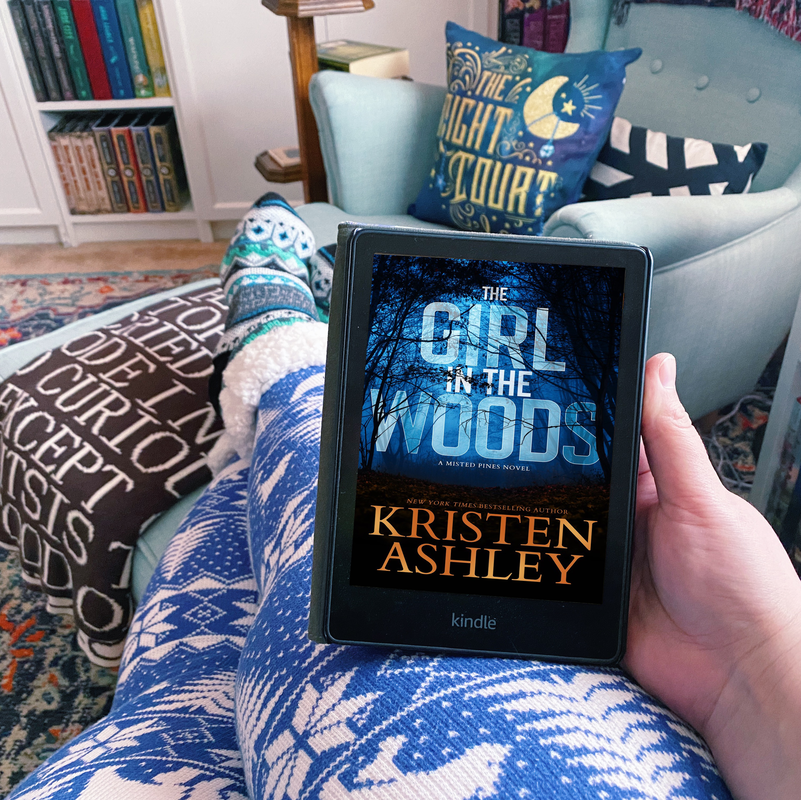
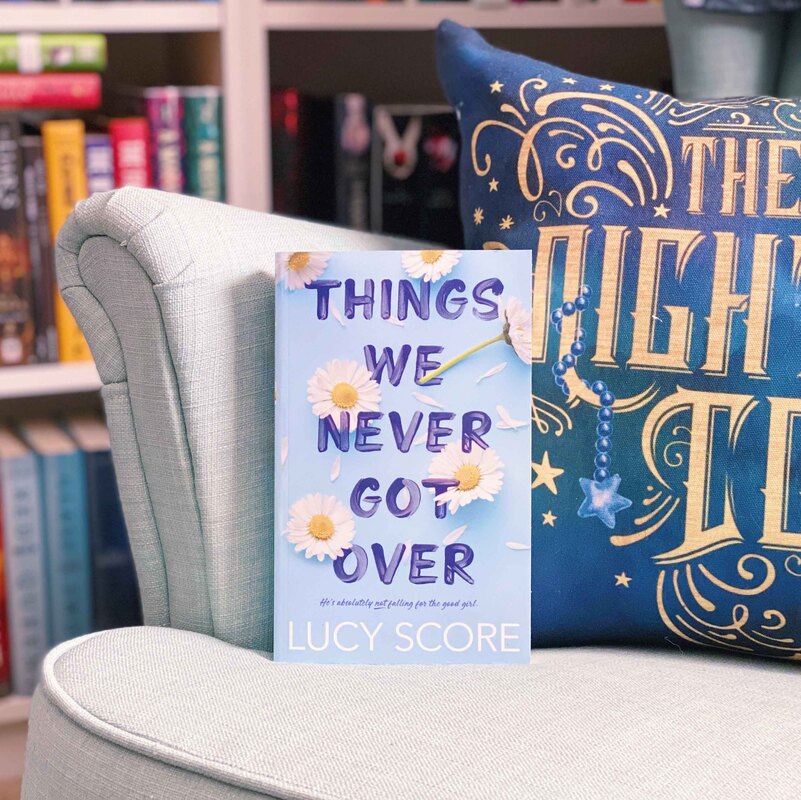
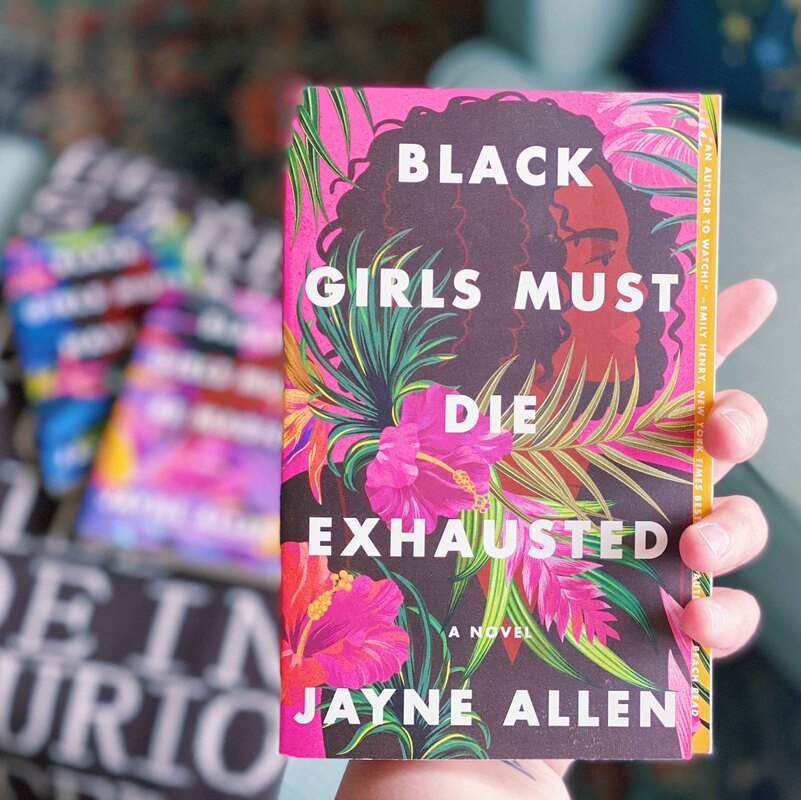
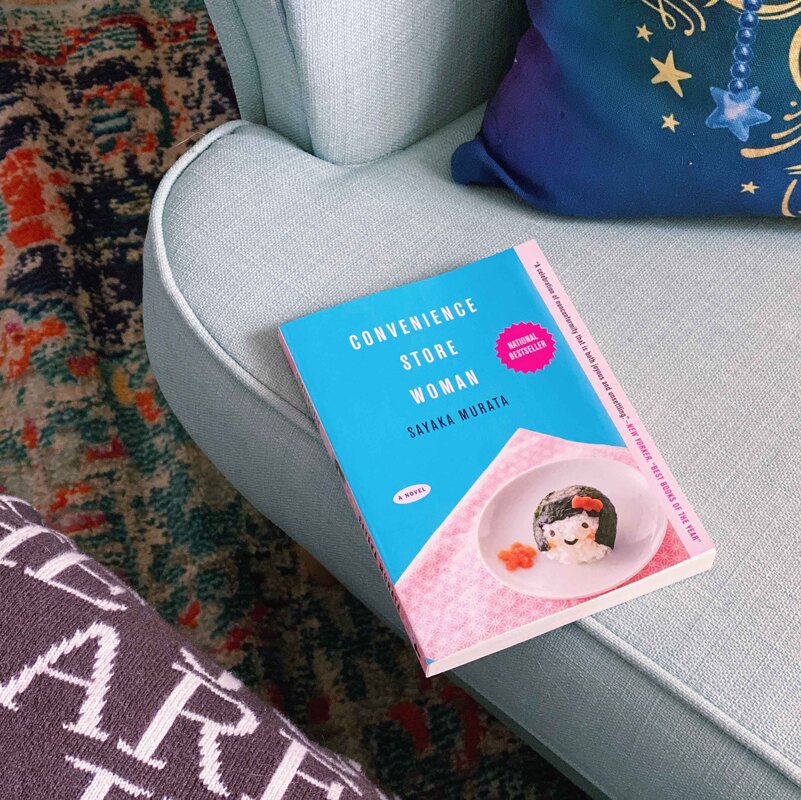
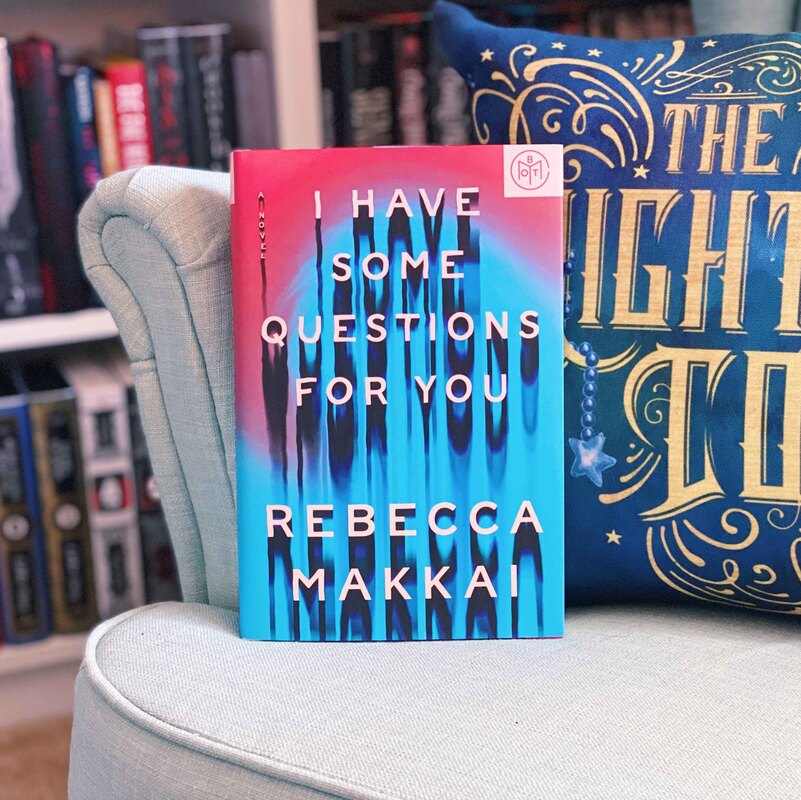
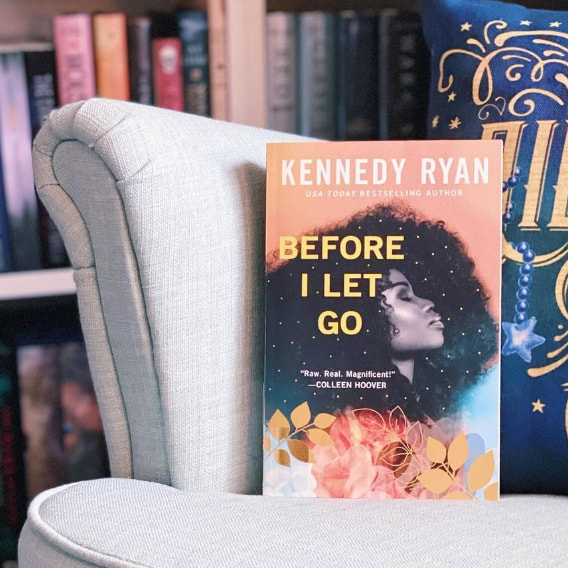
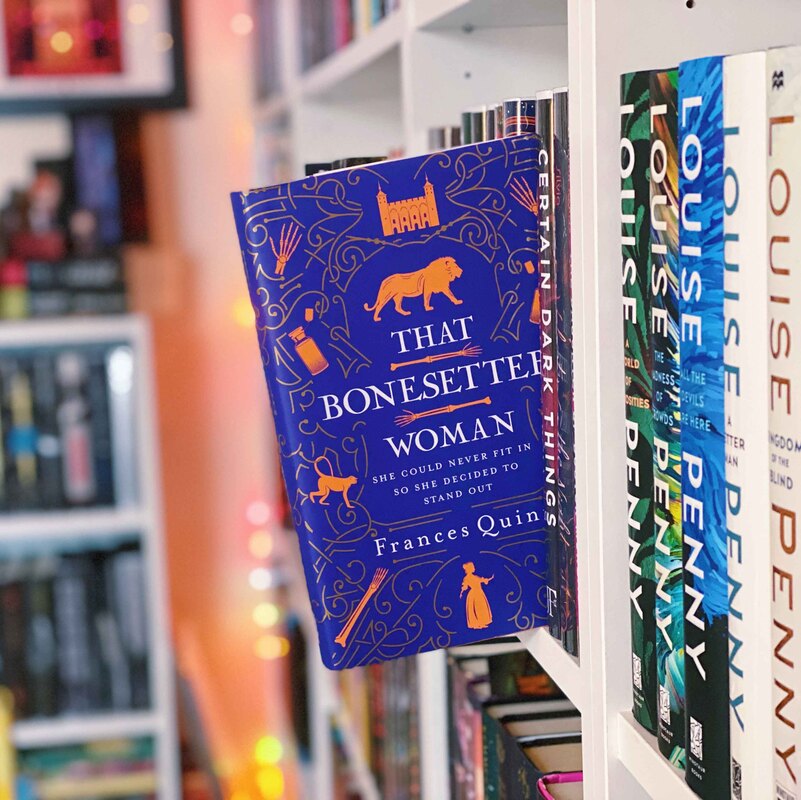
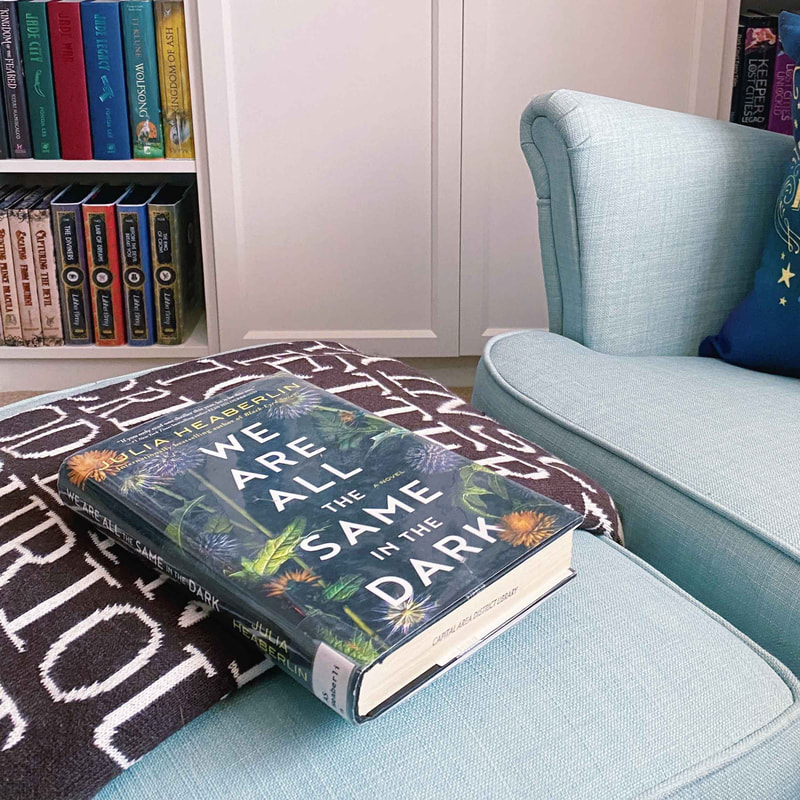

 RSS Feed
RSS Feed
